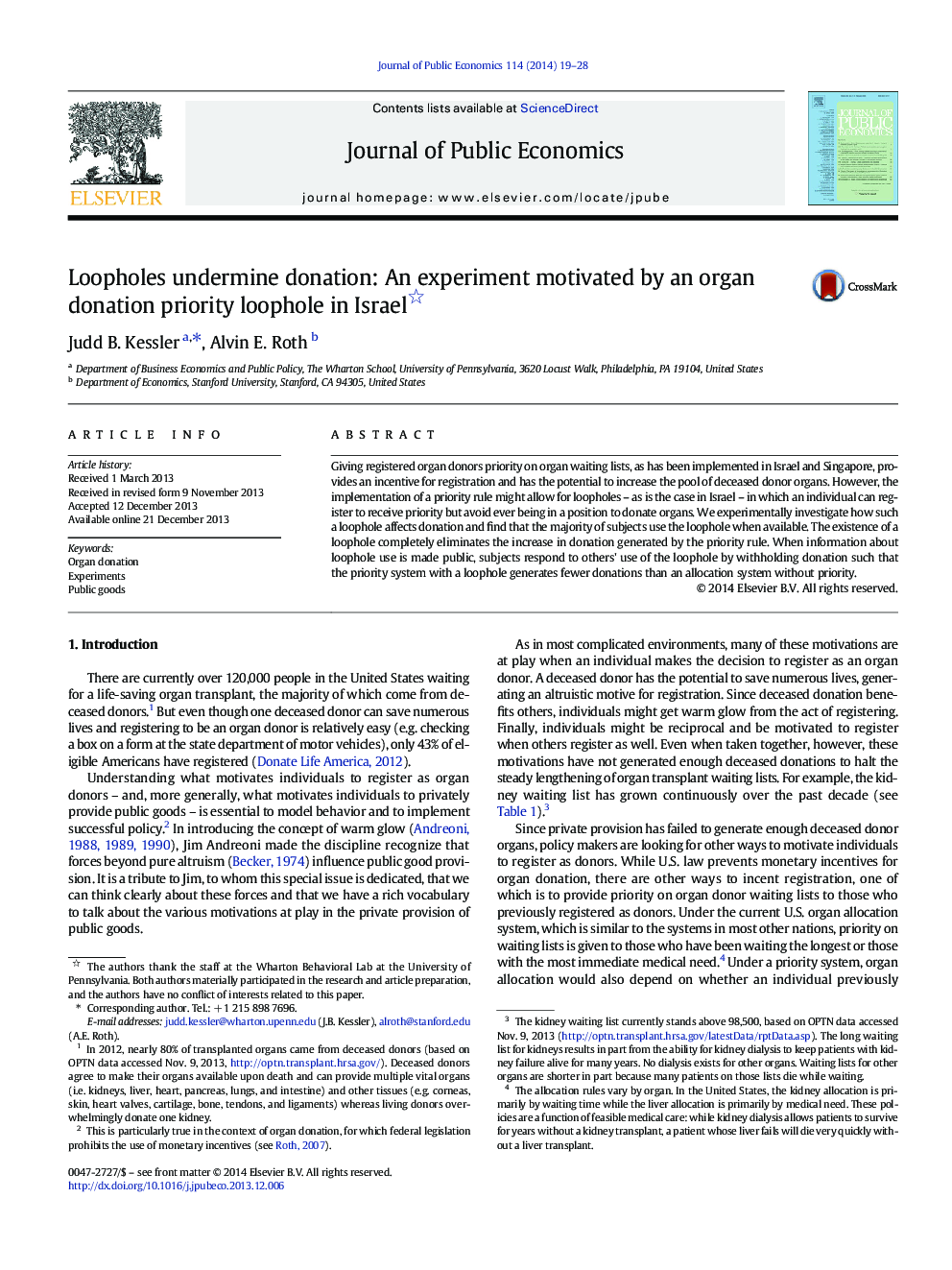| Article ID | Journal | Published Year | Pages | File Type |
|---|---|---|---|---|
| 969124 | Journal of Public Economics | 2014 | 10 Pages |
Giving registered organ donors priority on organ waiting lists, as has been implemented in Israel and Singapore, provides an incentive for registration and has the potential to increase the pool of deceased donor organs. However, the implementation of a priority rule might allow for loopholes – as is the case in Israel – in which an individual can register to receive priority but avoid ever being in a position to donate organs. We experimentally investigate how such a loophole affects donation and find that the majority of subjects use the loophole when available. The existence of a loophole completely eliminates the increase in donation generated by the priority rule. When information about loophole use is made public, subjects respond to others' use of the loophole by withholding donation such that the priority system with a loophole generates fewer donations than an allocation system without priority.
